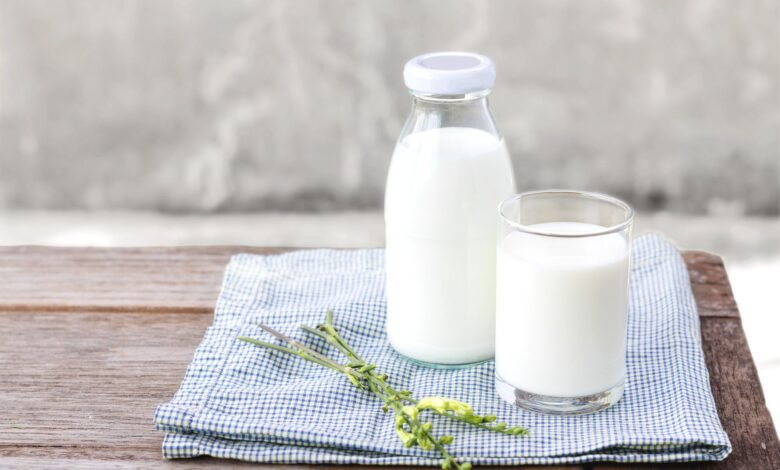A Bottle Of Milk Is A Bottle Of Health

Milk has been a staple in human diets for thousands of years, providing a rich source of nutrients and energy. With its creamy texture and unique taste, milk has garnered a reputation as a beverage of health and vitality. In this article, we will delve deep into why a bottle of milk is truly a bottle of health, exploring its nutritional benefits and the role it plays in supporting our overall well-being.
The Nutritional Profile
Milk is packed with a variety of nutrients essential for the human body. It serves as a vital source of calcium, protein, and vitamins, all of which contribute to its status as a powerhouse of nutrition.
Vitamins in Milk
From Vitamin A to D, milk is rich in essential vitamins that play a crucial role in maintaining good health. Vitamin A supports vision and immune function, while Vitamin D helps in the absorption of calcium, promoting strong bones and teeth.
Minerals in Milk
Beyond vitamins, milk is a great source of vital minerals such as calcium, phosphorus, and potassium. These minerals are integral for bone health, nerve function, and maintaining a balanced blood pressure.
The Power of Protein
Protein is another key component of milk, aiding in muscle growth and repair. It provides the body with essential amino acids, the building blocks of protein, which are crucial for various bodily functions.
Fats in Milk
Milk contains fats that provide energy and aid in the absorption of fat-soluble vitamins. While it’s important to monitor fat intake, the fats found in milk can be part of a balanced diet.
Milk and Bone Health
One of the most well-known benefits of milk is its role in promoting strong bones. The calcium, vitamin D, and phosphorus in milk work together to strengthen the bone structure, making it an essential beverage for all ages.
Lactose in Milk
Lactose is a sugar found in milk, and while most people can digest it without issue, some may be lactose intolerant. Understanding your body’s reaction to lactose is key to enjoying milk’s benefits.
Benefits for Children
For growing children, milk is a crucial part of their diet. It supports their rapid growth and development, providing them with the necessary nutrients for strong bones and a healthy body.
Benefits for Adults
Adults too can reap the benefits of milk. Its nutrient-rich profile supports bone health, aids in muscle maintenance, and provides a quick and easy source of nutrition.
Different Types of Milk
There are various types of milk available, each with its unique benefits. From whole milk to skimmed and plant-based alternatives, there’s a type of milk to suit everyone’s preferences and dietary needs.
Cow’s Milk
Traditional cow’s milk is rich in calcium, protein, and other essential nutrients, making it a popular choice for many.
Plant-Based Milks
For those who are lactose intolerant or prefer a plant-based diet, there are plenty of milk alternatives made from almonds, soy, oats, and more. These options still provide many of the nutritional benefits of traditional milk.
How to Incorporate
Milk into Your Diet Incorporating milk into your daily diet can be easy and delicious. From drinking a glass with meals to using it in cooking and baking, there are endless ways to enjoy milk.
Recipes and Ideas
To help you get started, we’ve gathered some recipes and ideas for incorporating milk into your meals. Whether you prefer sweet or savory, there’s something for everyone.
Conclusion
A bottle of milk is indeed a bottle of health, packed with essential nutrients that support our overall well-being. From strong bones to a healthy heart, the benefits of milk are vast and varied. So, the next time you reach for a beverage, consider the nutritional powerhouse that is milk.
FAQs
Is milk good for adults as well as children?
Yes, milk provides essential nutrients beneficial for both children and adults.
Can lactose-intolerant individuals drink milk?
There are lactose-free milk options available for those who are lactose intolerant.
What are some plant-based milk alternatives?
Almond, soy, and oat milk are popular plant-based alternatives.
Is it necessary to drink milk every day?
While it’s not necessary, including milk in your daily diet can provide numerous health benefits.
Can I get the same nutrients from milk alternatives?
Many milk alternatives are fortified with the same nutrients found in cow’s milk, making them a viable option.
Read more: Three Keys to Good Health




